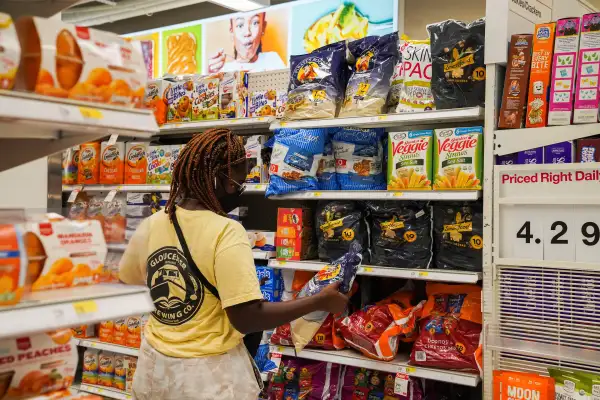Inflation Just Hit a Record High. Here's What That Means for Your Wallet

If you've bought a gallon of milk at the grocery store, filled up your gas tank or browsed through the sale racks at the mall over the last few weeks, you've encountered the highest inflation rate the U.S. has seen in decades.
The Consumer Price Index, which tracks the cost of thousands of goods and services for sale in the U.S. and is used as a common measure of inflation, rose 6.8% year-over-year in November, according to data released Friday by the Bureau of Labor Statistics (BLS). That’s the fastest prices have risen since 1982.
The rise comes amid a global supply chain crisis and surging consumer demand for goods — underpinned by an ongoing labor shortage across industries. Retailers are facing higher shipping and storage costs, higher materials costs and higher labor costs, all of which is getting passed on to the consumer.
On a monthly basis, prices ticked up 0.8% in November — a rise the BLS largely attributes to an increase in gas, housing and car prices.
Gasoline prices alone have risen a hair-raising 58.1% on a yearly basis, the BLS said, and 6.1% over the last month alone (though government forecasters expect them to fall in the coming year). Housing prices are up 3.8% on the year. Prices for new cars have spiked 11.1% since last November, while prices for used cars and trucks are up 31.4% year-over-year.
Grocery prices are up 6.4% over last year, which is the largest spike in that category since 2008, and clothing prices are up 5%.
Rising inflation means that money doesn’t stretch as far as it used to. So if you’re up for a raise at work this year, any pay bump less than about 5% means that your earnings are not keeping up with prices.
Online Shopping Costs Keep Going up — Especially for These Items
Why Workers Should Expect Their Biggest Pay Raises in Over a Decade
Why You Should Give an Extra Big Holiday Tip to Your Dog Walker and Babysitter This Year
